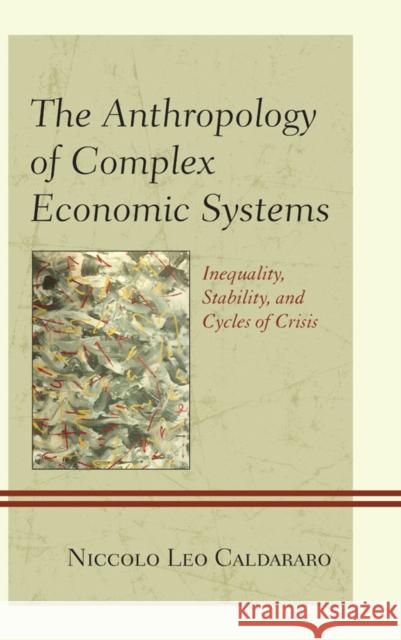The Anthropology of Complex Economic Systems: Inequality, Stability, and Cycles of Crisis » książka
The Anthropology of Complex Economic Systems: Inequality, Stability, and Cycles of Crisis
ISBN-13: 9781498520553 / Angielski / Miękka / 2015 / 340 str.
The Anthropology of Complex Economic Systems: Inequality, Stability, and Cycles of Crisis
ISBN-13: 9781498520553 / Angielski / Miękka / 2015 / 340 str.
(netto: 221,16 VAT: 5%)
Najniższa cena z 30 dni: 231,74
ok. 30 dni roboczych
Dostawa w 2026 r.
Darmowa dostawa!
Today we live in what Ulrich Beck has aptly characterized as a "risk society" shaped by intensifying crises outside of our control and seemingly outside of our comprehension. The master narrative that was supposed to lead us to secular salvation--economics--has proved to be a large part of the problem rather than the much anticipated solution. In The Anthropology of Complex Economic Systems, Niccolo Caldararo offers a much more radical and challenging answer: that the fundamental assumptions on which the modern "science" of economics has been erected are false, and that it is through the medium of anthropology, particularly the relatively neglected field of economic anthropology, that an alternative and sound basis for both the understanding of economic behavior and for the shaping of economic futures can be constructed. Caldararo not only challenges the foundational assumptions of conventional economic theory, but situates economic behavior (something quite different and universal amongst human beings) in both a historical and an ecological context. Contemporary discussions of "sustainability," especially in the field of development studies, have oddly neglected to look to anthropology. Economic anthropology, is the repository of a vast store of wisdom both about actual alternative and workable economic systems and about their evolution. By drawing on this source, Caldararo builds a model of the evolution of human economies which stir up substantial debate, shows how economic anthropology provides a tool for the interrogation of economic theory, and ties economics to ecology. It has been the rupture of this fundamental relationship that lies at the basis of much of our present crisis and the unsustainable economic patterns that humans have created. By bringing together in a new configuration economic anthropology, ecology, and culture history, Caldararo not only proposes a new model of human social evolution, but equally importantly creates a methodology for speaking to, and against, our present economic and environmental situation.











